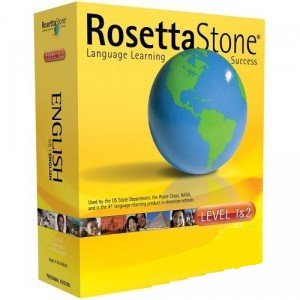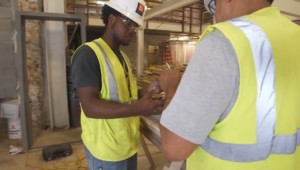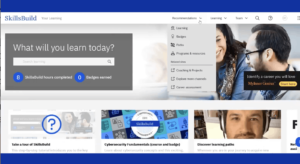Q&A: Language Skills Are Critical In Today’s World

Judy Verses, Rosetta Stone‘s President of Global Institutions, joins us today to explore the pertinence of bilingualism and language learning in today’s global market, national economy and more. Verses currently overseas corporate, government, non-profit and education business for the company worldwide. Prior to working at Rosetta Stone, Verses served as the President and Chief Client Officer for Global Sales and Marketing at the K-12 edtech company Blackboard.
Q: How did you first get introduced to Rosetta Stone?
I have a special passion for technology that delivers a better educational experience and prepares students for the world into which they will graduate.
Most people don’t realize it, but Rosetta Stone actually got its start in education over 20 years ago. Schools were our first customers. I was familiar with the brand, but then learned of their large, and growing presence in education and I was intrigued.
Language skills are critical in today’s world, and they are skills that too many people don’t have. What educators are doing with Rosetta Stone is amazing. Our technology allows schools, colleges, government agencies, and businesses – big and small – to deliver language learning on a large scale. And it’s especially empowering for learners when the software is engaging and motivates on-going use.
Q: How is Rosetta Stone being used in K12 and higher education?
Rosetta Stone solutions are being used in K-12 and higher education to develop language skills that are critical to succeeding academically and in the global economy. The way K-12 and higher education customers have adopted Rosetta Stone into their curriculum is often unique to the school or university’s specific needs.
Two common uses of Rosetta Stone include world language and English as a second language programs. From elementary school to post-secondary education, many schools take a blended approach to incorporating Rosetta Stone as part of their instruction. In many schools, this means students spend time learning foundational languages skills online with Rosetta Stone and valuable classroom time with a teacher or instructor practicing what they’ve learned and exploring customs and culture. In some schools, Rosetta Stone is a part of classroom instruction, enabling students to learn at their own pace and instructors do what they do best – individualize learning.
On the whole, Rosetta Stone provides educators with the tools they need to individualize learning, whether students need more help with pronunciation or more practice with listening comprehension. Our education solutions combine our award-winning language-learning content with management tools on a scalable platform. This allows schools, districts, and universities to provide measured, tracked language instruction to as many students as needed.
Other ways K-12 and higher education institutions use Rosetta Stone include professional development for teachers, staff, and faculty; and after-school or specialty programs including community learning. Also, as online learning programs become more prevalent, educators are increasingly leveraging the flexibility of Rosetta Stone’s solutions to offer language learning opportunities to students.
Q: Why is learning a second language important?
Learning a second, third, or even a fourth language is important in today’s world. The economy is global, the world is shrinking, and in order for students to compete within this world, they need to be multilingual. Even for jobs typically not considered “global,” language skills are important as demographics continue to shift. Think about nurses, first responders, and even teachers – the need for them to be multilingual continues to grow as communities change. Consider the demographic trends in the United States. The number of non-native English speakers has increased dramatically in the past couple of decades, many who are classified as not speaking English “very well.”[1]
Q: What language do you think is most important to know in today’s economic climate? Why?
Based on what we see from our customers, I think Chinese (Mandarin) is an increasingly important language to know—it is our fastest growing one. And Spanish continues to be important here in North America. I don’t expect that to change significantly, though with the rise in economic power of the BRIC countries, those languages are increasingly important too.
English continues to be an important language to learn and the population of non-native speakers in this country continues to grow. Equipping these people with English skills, in addition to their native language, opens up opportunities they wouldn’t have otherwise.
Q: Is there an economic imperative to knowing more than one language?
Absolutely! The pace and reach of globalization mandates language skills in order to remain competitive. Consider that in 1990 only one-third of S&P 500 revenues came from outside the U.S. Today it’s half, and by 2025 over two-thirds of revenues will be international.
People who are multilingual have career advantages that monolinguals do not. And here in the United States, we don’t treat language education with the same level of importance that our counterparts overseas to—to our detriment.
Q: Many schools and districts are cutting language courses due to budget cuts. What sort of negative impacts do you believe this will have on students’ futures?
Well, we just covered the economic imperative associated with multilingualism, so cutting language programs in schools will impact students’ futures. They won’t be as globally competitive as students from countries that value, and fund language learning. And there are opportunities that won’t be open to them because their skill set is lacking.
There already exists a large gap in our language education compared to that of other countries. Only 23 percent of US language learners grow their proficiency beyond “beginner level” compared to 33 percent for China and India and 57 percent in Germany. Couple this gap with the fact that only nine percent of the U.S. is bilingual compared to 65 percent of the world’s overall population.
Q: How can we endure budget cuts and maintain language learning with program like Rosetta Stone?
Weakening an already poor language-learning infrastructure in schools will only exacerbate the problem. Schools and universities need to empower educators to do more with their limited resources and explore solutions that will actually help them grow, not just maintain, language learning.
Programs like Rosetta Stone leverage technology to expand the reach of teachers and instructors. Using innovative technology to build students’ foundational language skills, instructional emphasis can be directed toward higher order learning in the classroom.
The technology can also be used to offer language courses in which teaching resources are difficult to find, for example Mandarin or Arabic. Existing language programming can be expanded using a platform that expands instructional reach and content.
Q: How do you envision the future of language learning?
I envision a cultural shift in this country that emphasizes multilingualism. Every student will have access to language learning, starting in elementary school. If we start our students younger and whet their appetite for language learning and exploring other cultures, by the time they graduate high school and college they should know more than one additional language.
Technology exists to make this feasible and innovative educational institutions are already doing fantastic things with it. Take for example the elementary school in Northern Virginia that has students in third grade learning Mandarin. Consider the university that provides access to Rosetta Stone to every student as part of their campus-wide globalization initiative. There is absolutely no reason every student in this country can’t be multilingual. We just need to adjust our thinking on how best to expand their opportunities.



0 Comments
Leave a Comment
Your email address will not be published. All fields are required.